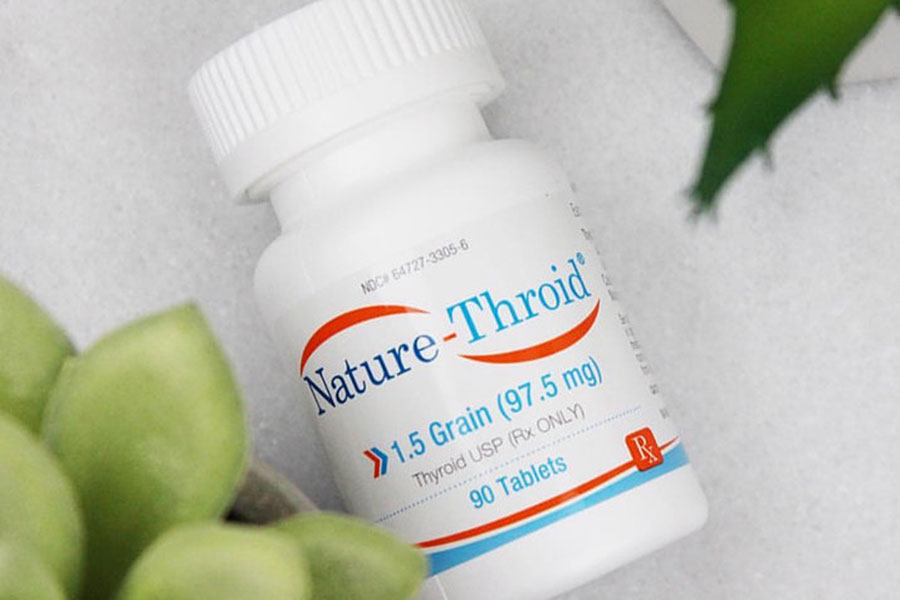What Is Hormone Testing And Do I Need It?

Meriden McGraw is the co-founder of Quidwell where she works…
Hormones contribute to our energy levels, pain tolerance, how much we are affected by stress, how well we sleep, our moods, and more and even tiny changes in your hormones can have serious effects throughout your body. Hormone testing was once reserved for women trying to procreate, but a growing number of docs are looking more carefully at all of their patients’ hormone levels. This may be good for you if you’ve been experiencing any of these symptoms and can’t explain why, or simply want to know more about your body.
When we decided to do an article on Your Wellness Center’s hormone imbalance work it was obvious due to Molly’s fear of needles (hormone testing requires blood draws) that it would be me taking the lead on this one. I thought, sure, I’ll get tested. I also thought, there’s no way I have a hormone imbalance. My cycles are regular, I’m active, I eat healthily, I practice meditation–my hormones must be in tip-top shape. So, I thought. I assumed that hormone testing and corresponding imbalances were just for women struggling with infertility or those going through menopause. I was incorrect.
The basics of hormones
Let’s take a step back. Hormones are your body’s chemical messengers. They’re produced in the endocrine glands, and they travel around your bloodstream telling tissues and organs what to do. They also help control many of your body’s major processes like metabolism and reproduction. Hormones contribute to our energy levels, pain tolerance, how much we are affected by stress, how well we sleep, our moods, and more. When you have a hormonal imbalance, you have too much or too little of a certain hormone. And just like the slightest twinge in your low back can be felt throughout your entire leg, even tiny changes in your hormones can have serious effects throughout your body. And, as I learned through this process, many of us have hormonal imbalances for a host of different reasons (normal aging, stress, diet, our environments, etc.). And, while, yes, hormone testing was once reserved for women trying to procreate, a growing number of docs are looking more carefully at all of their patients’ hormone levels. Read: growing. It’s still not a lot, and it’s still not mainstream.

Enter Your Wellness Center and my new best friend Judy
Judy, you may not agree with this new bestie status, but after our numerous conversations about my inner workings and your empathetic support, I feel it. The process was simple. I went to Your Wellness Center and got my blood drawn. It took me maybe ten minutes. Then, a few weeks later, I went back for my appointment with Judy.
She sat down, got to know me a bit, introduced herself, and then once the pleasantries were out of the way she asked, “You’re not trying to get pregnant, right?”
I replied, “Um, why? I mean, not yet, but probably soon. My husband and I have only been married a year, and I’m only 31.”
Guess what guys, I’m not 31 according to my progesterone levels. According to those I’m 35. It didn’t feel great to hear that, BUT it felt good to know that information. Judy went on to explain what she tested: estrogen, progesterone, DHEA, testosterone, thyroid measures, and my vitamin D levels.
Folks reading this, please go see Judy to actually get a medical explanation for what I’m about to explain in my own words (probably butchered). So, anyway, my results. First of all my thyroid. So basically when you go to your regular doctor they test for two thyroid markers. However, even when those two markers look normal, there is a third marker not normally tested for which can be completely off and be impacting your thyroid (and the rest of your bod). Mine was off so Judy started me on thyroid grains. It was low cost and she handed it to me on the spot.

Secondly, my Vitamin D levels were super low so she gave me a supplement for that. Easy. Finally, back to my progesterone levels. Progesterone is the baby making hormone. It SKYROCKETS when your pregnant and you need a certain level of it in your body to make a baby. It also reduces as we age. Mine was lower than it should be at my age. Aside from potential infertility issues, this can cause a host of other side effects like weight gain, mood changes, headaches, etc. Judy recommended that I take progesterone to get my levels up. To be honest, I’m pretty particular about what I put in my body especially when it comes to something that I’m supposed to take daily. So I asked questions.
Judy explained that they use Natural Hormone Replacement which means they use bioidentical hormones, not synthetic ones. Here is a quote from their website explaining the difference.
“Bioidentical hormones are hormones that are chemically identical to the natural ones your body once produced in larger quantities. Bioidentical hormones are superior to synthetic hormones, which have been altered in a lab to resemble our natural hormones. Pharmaceutical companies alter these hormones so they can obtain patent protection on the product. This allows them to obtain FDA-approval, acquire insurance coverage, and generate and protect profits. Natural hormones, on the other hand, can’t be patented since they are naturally-occurring.”
I’ve been taking the vit. d and the thyroid grains for about two months, and I’ve been taking the progesterone for one. I’ve noticed the biggest difference with the progesterone. I take it at night and I sleep way better. I really do feel grateful that I did this. At some point my husband and I do want to have kids, and what if I’d tried for 6-months or a year without knowing that my progesterone levels were off and impacting my fertility? It seems like a no brainer to get this test done first before trying. Judy had a list of positive patient stories to share and you can read various testimonials on their site.

What to Expect
This may be good for you if you’ve been experiencing any of these symptoms and can’t explain why, or simply want to know more about your body. Expect a blood draw and then about an hour follow-up appointment, and then potentially more follow-up appointments depending on what they find and prescribe you.
Photography by: Amy Spasoff
Meriden McGraw is the co-founder of Quidwell where she works to optimize the health of women. Outside of Quidwell, Meriden combines her master’s level education in mental and public health with her training in mind-body modalities to teach individuals and groups techniques for optimal wellbeing. Meriden holds various certifications in pranayama (breath techniques), positive psychology, mindfulness, and yoga. On an average day, Meriden can be found practicing yoga, drinking kombucha, dragging her husband to strength training workouts, and taking her pup for a walk.


